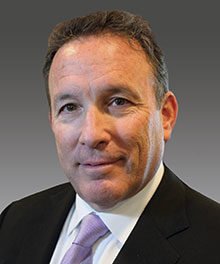Wegmania!

New York is a city of foodies, so it’s not entirely surprising that people here have been going crazy about the opening of NYC’s first Wegmans at the Brooklyn Navy Yard last Sunday.
For those who aren’t familiar, Wegmans is a family-run grocery chain based in Rochester, New York. It’s built a cult following ( “Wegmaniacs”) and has expanded throughout New York State and into New Jersey, Maryland, Massachusetts, North Carolina, Pennsylvania and Virginia. In Brooklyn, it’s hard to find a suburban-style grocery store like this – the store is 74,000 square feet and has 700 parking spaces – so neighborhood residents have been flocking.
As you know, I’m a huge fan of family businesses – we advise many here at Marcum – so it’s been fascinating to watch Wegmans expand. There’s fierce competition in the traditionally low-margin grocery space from players like Whole Foods and Trader Joe’s, but Wegmans is taking them on successfully by embracing its identity as a regional, family-run company operated by real people, instead of trying to be more corporate than it really is.
With many food stores in distress because of high overhead, price competition and the growth of online shopping, there’s been a lot of consolidation in recent years. One recent example is Stop & Shop’s acquisition of King Kullen. Some chains, like Waldbaums (hope I’m not being too “New York” for all of you right now) – whose assets were purchased by a private equity firm – have not been able to survive. And many of those that are still around are swapping the human touch for bag-your-own grocery terminals and moving to grocery robots for shelving and cleanups.
As the frenzy over Wegmans shows, consumers still appreciate going to a store that has lots of people working there.
Wegmans has also nailed the right vibe for its stores. Many people who like to buy healthy fair avoid traditional health food stores and food coops because of the holier-than-thou atmosphere that some shops have. Wegmans oaffers options like organic foods and international groceries in an unpretentious atmosphere. And the prices are more in line with traditional grocery stores than Whole Foods.
Wegmans is particularly unique because it’s made it to the fourth generation of family leadership – which is almost unheard of in family businesses. Founded in 1916, the chain is now run by president and CEO Colleen Wegman, whose great-grandfather co-founded the company.
Making it beyond the first generation doesn’t happen by accident. It takes smart, sophisticated succession planning.
The founders of a family business may have very different passions and goals than their children, grandchildren or even their great-grandchildren, whom they may never even know. Just because you’re in the same family, it doesn’t mean you’re going to want the exact same things out of life (or business).
Still, it’s possible for younger generations to find a role in a family business if everyone keeps an open mind. Digital natives in Gen Y and Z are often great at bringing family businesses up-to-date in areas like e-commerce and mobile marketing, for instance. Starting out in a role like that can be a great way to learn about the company and prepare for a bigger leadership role later.
My role at Marcum often keeps me on the road, so I don’t have a lot of time for grocery shopping. But I’m going to have to make a trip to Brooklyn with Tracy, Lily, Kate and Max to check out the new Wegmans and maybe its burger bar one day soon. Nothing like a little on-the-ground research to stay current on what’s happening in the middle-market world.
P.S. The Fed just cut rates again to bolster the economy, which has slowed in recent months. Although the policy-setting committee noted that job gains were “solid” and household spending is continuing at a “strong pace,” now is a good time for every business leader to keep a close eye on economic indicators. The right time to get in front of economic trends is before they happen.
